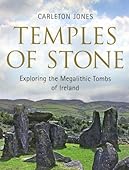Register here - as a registered user you get more features and fewer ads.
Submitted by coldrum ---
A study reveals ancient human teeth showing evidence that stressful events during early development are linked to shorter lifespans.
Anthropologist George Armelagos led a systematic review of defects in teeth enamel and early mortality. He said: ‘Prehistoric remains are providing strong, physical evidence that people who acquired tooth enamel defects while in the womb or early childhood tended to die earlier.
His paper is the first summary of prehistoric evidence for the Barker hypothesis – the idea that many adult diseases originate during foetal development and early childhood.
He added: ‘Teeth are like a snapshot into the past. Since the chronology of enamel development is well known, it's possible to determine the age at which a physiological disruption occurred. The evidence is there, and it's indisputable.'
The Barker hypothesis is named after epidemiologist David Barker, who during the 1980s began studying links between early infant health and later adult health. Tooth enamel can give a particularly telling portrait of physiological events, since the enamel is secreted in a regular, ring-like fashion, starting from the second trimester of foetal development.
Disruptions in the formation of the enamel, which can be caused by disease, poor diet or psychological stress, show up as grooves on the tooth surface.
For the Evolutionary Biology paper, Armelagos led a review of the evidence from eight published studies, applying the lens of the Barker hypothesis to remains.
In [an] example, remains from Dickson Mounds, Illinois, showed that individuals with teeth marked by early life stress lived 15.4 years fewer than those without the defects, says an EU release.
For more, see dentistry.co.uk.
Something is not right. This message is just to keep things from messing up down the road



